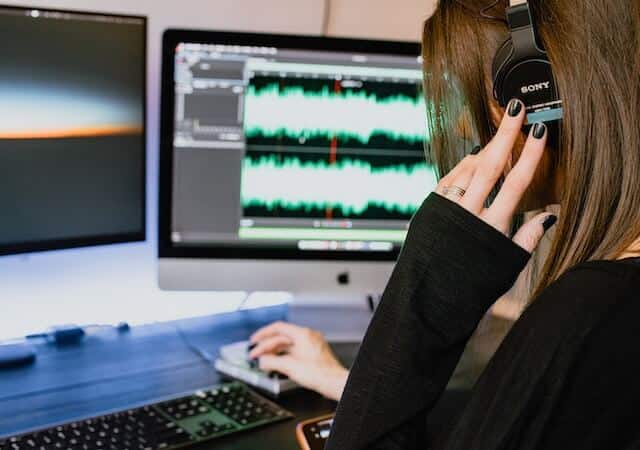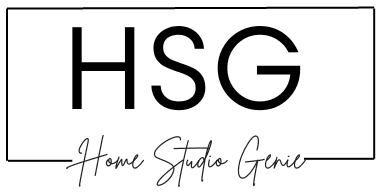As a proficient music producer, DJ, and home studio owner, I have often come across the question, “Can I make music without knowing how to play an instrument?”
It’s a common question among aspiring musicians who’re eager to dive into the world of music production.
In this article, we will explore this topic in-depth, discussing the importance of music theory. We’ll also get into the challenges it presents, and alternative methods to creating music.
So, let’s jump in and find out if playing an instrument is a prerequisite for making music.
Can I Make Music Without Knowing How to Play an Instrument?
Yes, you can make music without knowing how to play an instrument. In fact, many successful music producers and composers do not know how to play an instrument.
Many modern producers use software and digital tools to create their music.
There are many different ways to make music without playing an instrument. One way is to use a digital audio workstation (DAW).
Best Music Production Software in 2023:
- Ableton Live
- Cubase
- Logic Pro
- FL Studio
- Pro Tools
A DAW is a software program that allows you to record, edit, and mix audio. You can use a DAW to create your own sounds, or you can use samples and loops that have already been created.
Another way to make music without playing an instrument is to use a MIDI controller. A MIDI controller is a device that allows you to control software instruments.
You can use a MIDI keyboard controller to play virtual instruments. You can also use it to create your own sounds by manipulating the controller’s knobs and sliders.
If you want to make music without playing an instrument, there are a few things you need to know.
First, you need to have a good understanding of music theory.
Music theory is the study of the rules and principles of music. It will help you understand how music works and how to create your own music.
Second, you need to have a good ear. A good ear is essential for being able to create music that sounds good.
You need to be able to hear the different notes and intervals. You also need to be able to identify different rhythms and tempos.
Third, you need to be creative because making music is a creative process. You’ll need to be able to come up with new ideas and put them together in a way that sounds good.
If you have these three things, you can make music without playing an instrument.
There are many resources available to help you learn about music theory. They can also help on how to develop a good ear, and how to be creative.
With a little effort, you can be making your own music in no time.
Learning Music Theory: Do You Really Need It?
No, learning music theory is not essential for music production. Music theory can help you understand how music works, and it can help you communicate your ideas to other musicians.
When it comes to making music, many aspiring musicians wonder if learning music theory is an essential requirement.
As a music producer, DJ, and home studio owner, I’ve often pondered this question myself.
Let me share my insights and experiences with you.
Personally, I believe that music theory can enhance your musical journey. With that said, it’s not an absolute necessity for making music.
In fact, some of the most iconic and influential musicians in history have created incredible works without formal training in music theory.
Their sheer creativity and innate musicality drove their compositions.
However, understanding music theory can open up new avenues of creativity. They can also help you communicate and collaborate effectively with other musicians.
It provides a framework to grasp the fundamental principles of music, such as scales, chords, progressions, and rhythm.
Is Learning Music Theory Difficult?
No, learning music theory can be difficult, but it is not impossible. The difficulty of learning music theory depends on your individual learning style and the practice time you put into it.

We often find that learning music theory can seem intimidating at first. This is especially true if you have no prior experience with it.
But, I believe that with the right approach and resources, anyone can grasp the basics of music theory.
It’s all about breaking it down into manageable chunks and applying it practically.
If you are a visual learner, you may find that learning is easier if you use a visual aid. This can be a music theory textbook or software program.
If you are an auditory learner, you may find that learning music theory is easier if you take a class or listen to music theory lectures.
No matter what your learning style is, the most important thing is to be patient and persistent.
Learning music theory takes time and effort, but it is worth it in the end.
Rather than getting overwhelmed with complex concepts, start with the basics. Learn about scales, chords, and rhythm patterns.
Experiment with different combinations and progressions. Take it one step at a time, allowing yourself to absorb the knowledge slowly.
What’s The Fastest Way To Learn Music Theory For Music Producers?
The fastest way to learn music theory is to combine the theory side with the practical side. You’ll find that you grasp concepts faster if the two are combined
As a music producer, your focus might be more on the practical side of music creation rather than delving deep into theoretical aspects.
The good news?
There are efficient ways to learn music theory without struggling through excessive theory.
One effective approach is to combine the practical application with theory.
Start by learning a specific musical concept or technique and immediately apply it in your own productions.
For example, if you’re learning about chord progressions, try incorporating them into your tracks right away.
This hands-on experience will reinforce your understanding and make the learning process more engaging.
Here are some tips to expedite your learning process:
- Online Courses and Tutorials: There are numerous online courses and tutorials specifically designed to teach music theory.
These resources often provide structured lessons and interactive exercises. They can help you grasp the concepts more efficiently.
- Collaboration and Mentorship: Collaborating with other musicians or seeking guidance from experienced mentors can be invaluable.
Working alongside seasoned professionals allows you to learn firsthand. You’ll also gain practical insights into music theory and its application in production.
- Hands-On Practice: Applying the concepts of music theory directly in your music production can solidify your understanding.
Experiment with different scales, chord progressions, and rhythmic patterns. This will help you in your compositions and reinforce your knowledge.
- Deconstructing Existing Tracks: Analyzing and deconstructing songs by renowned artists can provide valuable insights. You’ll figure out how music theory is applied in real-world productions.
Observe the chord progressions, melodies, and arrangements used by the pros. You’ll gain a deeper understanding of the principles at play.
Another helpful resource is online tutorials and courses specifically tailored for music producers. Look for resources that provide practical examples and explanations.
These tutorials often focus on the aspects most relevant to modern music production. We noticed that this most beginners time and effort.
Is It Possible To Teach Myself Music Production?
Yes, it is possible to teach yourself music production. There are many resources available online and in libraries that can help you learn the basics of music production.
In today’s digital age, there are countless opportunities to learn music production on your own. I personally started my journey as a self-taught music producer.
With dedication and practice, it is entirely possible to excel without formal training.
Start by familiarizing yourself with music production software and tools. There are many user-friendly DAWs available.
These will offer a wide range of features and capabilities.
Experiment with different plugins, virtual instruments, and effects to understand how they shape your sound.
Online communities, forums, and tutorial platforms can be invaluable resources for self-teaching.
Engage with fellow music producers, ask questions, and share your work for feedback. The feedback and support from the community can help you grow as a producer.
Don’t be afraid to make mistakes and explore new sounds. Embrace the learning process and be open to experimentation.
Remember, every great producer started somewhere, and your journey is unique to you.
The Benefits of Understanding Music Theory
Learning music theory offers several benefits that extend beyond the realm of music production.
Here are some of the advantages of understanding music theory:
- Improved Creativity
Music theory provides you with a framework to explore different musical ideas. It expands your creative palette and allows you to experiment more.
- Enhanced Communication
Understanding music theory enables you to clearly communicate your musical ideas. This will come in handy with other musicians, producers, and collaborators.
It facilitates better collaboration and a shared understanding of musical concepts.
- Greater Musical Appreciation
By learning music theory, you gain a deeper appreciation of the music you listen to. You can analyze compositions effectively and recognize the choices made by the artists.
- Versatility and Adaptability
With a solid foundation in music theory, you can easily adapt to different musical genres and styles. It provides you with the necessary tools and knowledge to explore new music.
Putting Theory into Practice
Personally, I believe that even though music theory can enhance your music, it is not an absolute necessity for making music.
As you delve into the world of music theory, remember that it’s not meant to restrict your creativity. Rather, it’s made to provide a strong foundation for your musical journey.
You have to familiarize yourself with music theory concepts. The more you do that, the more intuitive and natural the songwriting process will become.
Embrace the learning process and experiment with different techniques. Remember to not be afraid to make mistakes.
Some of the greatest musical innovations were born out of creative experimentation.
Can I create professional-quality music without knowing how to play an instrument?
Yes, many renowned producers have created exceptional music without formal instrumental training.
Is it easier to learn music theory if I already know how to play an instrument?
Yes, having prior knowledge of playing an instrument can provide a solid foundation for learning music theory. However, it is not a prerequisite.
Can I produce music solely using software and virtual instruments?
Yes, modern music production software and virtual instruments offer a wide range of sounds and capabilities.
Are there any famous producers who can’t play instruments?
How can I overcome the limitations of not playing an instrument in my productions?
Collaborating with skilled instrumentalists or using pre-recorded samples and loops can help add depth and authenticity to your productions.

Mike is a skilled musician, guitar technician, and music producer with a passion for audio and gear. He excels in teaching guitar, editing podcasts/videos, and creating captivating soundscapes using cutting-edge hardware, software, and plugins. Mike’s talent and commitment make him highly sought-after in the industry, inspiring fellow musicians worldwide.

